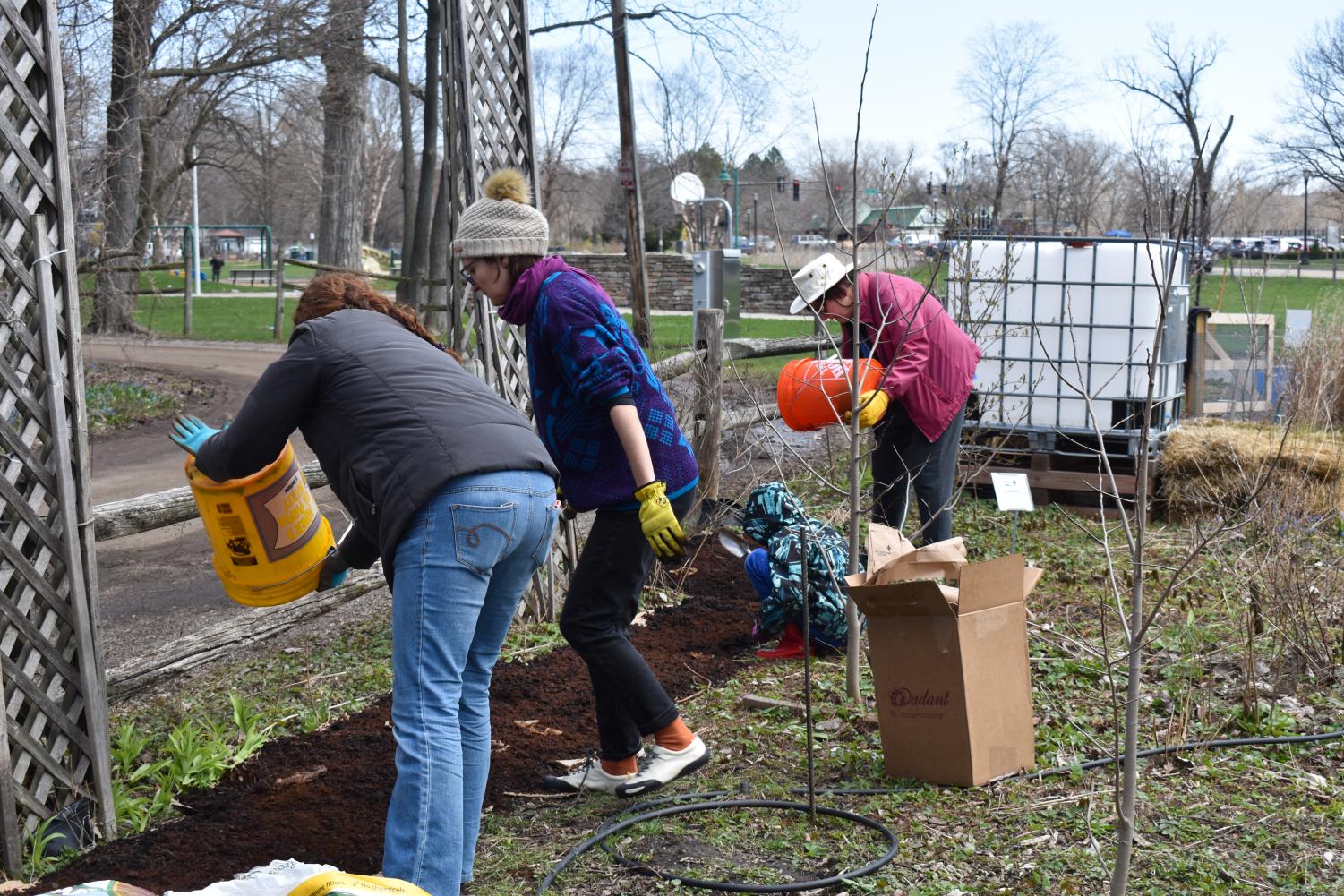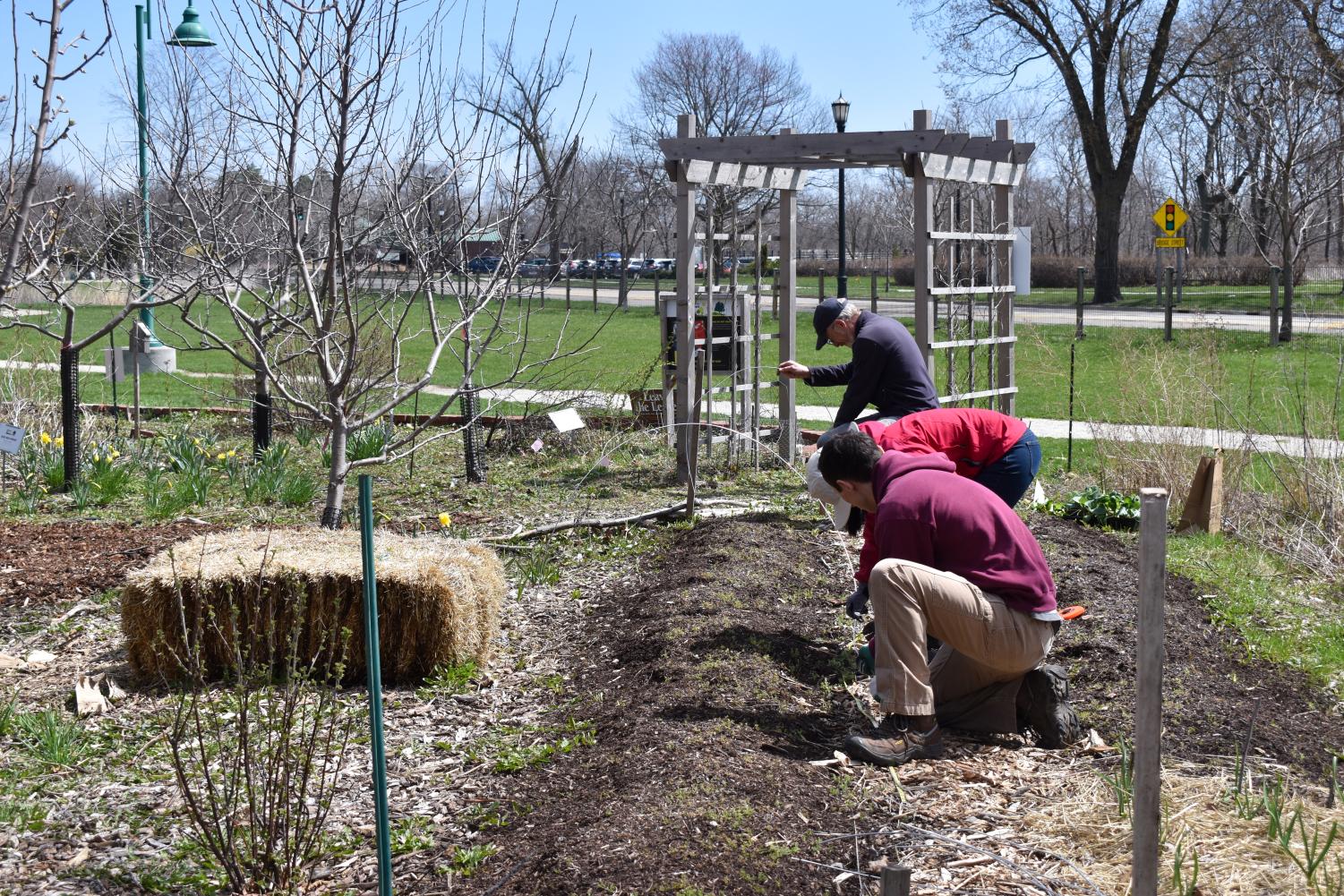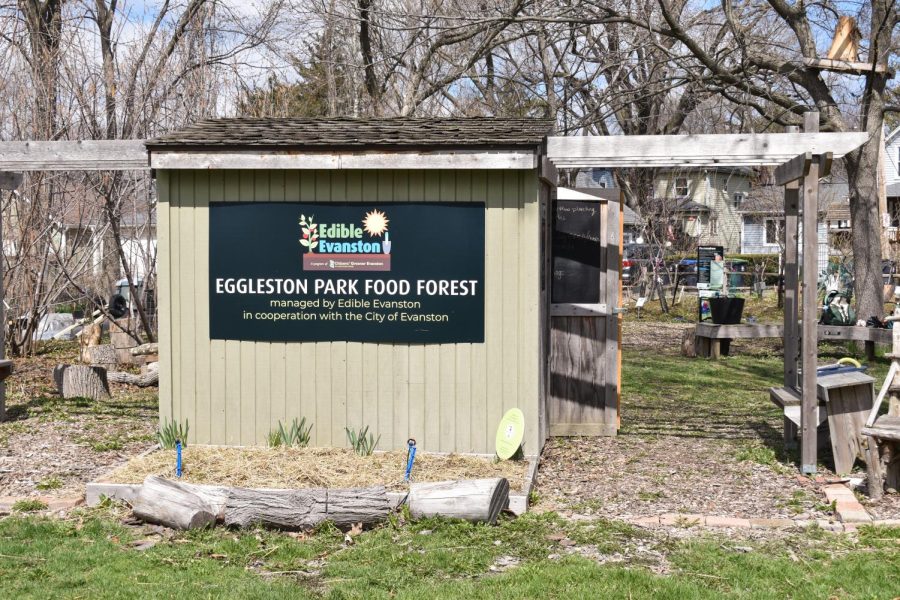Edible Evanston promotes food growing and sharing, education in community with Food Forest
Kara Peeler/The Daily Northwestern
Edible Evanston’s Eggleston Park Food Forest. The nonprofit promotes food growing and sharing, education and outreach.
April 17, 2022
To Co-Leader Tim Sonder (Medill ’83), Edible Evanston is all about connection.
By connecting residents to food sources, the earth and Evanston, the nonprofit aims to promote community through food growing and sharing.
Edible Evanston was born in 2013 as one of the top 10 ideas to improve the city proposed by Evanston 150, a group that designated beneficial projects to commemorate the city’s 150th anniversary. The organization joined Citizens’ Greener Evanston, an environment-focused nonprofit, as an independent program in 2016.
One of Edible Evanston’s main initiatives is the Eggleston Park Food Forest. The Food Forest uses the principles of permaculture to grow an array of edible plants, designed to mimic a natural ecosystem.
“There’s so much to share about how to grow in an ecologically sensitive way where we understand how biological systems all work together, how everything is connected,” Sonder said. “We can be more successful by supporting the diversity of life instead of fighting it and having a kill, kill, kill attitude (toward) pests and problems.”
The forest aims to grow a diverse range of crops, including lesser-common fruits like pawpaws, gooseberries and honeyberries.
At the first volunteer event for the Food Forest on Saturday, volunteers picked up trash, planted new seeds and set up a five-layered “lasagna” compost area for future plants.

Sonders said some volunteers rotate in while others volunteer regularly. On Saturday, there were newcomers and returners alike at the Forest.
“It’s a lot of fun watching people learn to do things that they’ve not done before, that maybe they’ll take home and do in their gardens,” Co-Leader Laura Bradley said.
One volunteer, resident and teacher Michael Ogburn said he enjoys bringing what he learns from the Food Forest into lessons with his students.
Since he joined Edible Evanston, Ogburn said the co-leaders have been very open, focusing their efforts on education.
“I think what’s so great about it is it builds community,” he said. “Everyone can join from all different kinds of walks through life. It is just a tighter knit community.”
Sonders said his interest in the forest stems from the connection he feels to the earth through agriculture. While planting and harvesting, volunteers seek to bridge the “shocking” disconnect between people, nature and the food they eat.
“Growing plants in general gives me joy,” Sonders said. “But (so does) the idea of growing something that will sustain you and teaching people how to do that and how to connect with their food.”

Edible Evanston also centers food sharing, Sonders said. The organization runs a produce sharing initiative called “Donate What You Grow,” which collects gardeners’ surplus to donate to food pantries.
The majority of food grown at the Food Forest goes to volunteers and the food pantry system, according to Sonders. He said this year, the nonprofit was able to collect and donate double the amount of food as last year.
“We get it to people who need food and who tend not to get fresh … locally grown food,” Sonders said. “Our food pantries really appreciate it. They appreciate the diversity of produce that everybody donates.”
Bradley said she and other leaders are looking into other partnerships throughout the community. Edible Evanston accepts coffee grounds from Reprise Coffee Roasters for use in composting.
Edible Evanston continues to turn unusable, decorative turf into land that can produce something edible, Sonders said. The organization will have future events like volunteering days at the Food Forest and seed swaps.
“While we do like to be productive and get a yield, … we do consider that community engagement and community education is one of our yields,” Sonders said. “We hope to inspire people to put together these ideas and practices as they can in their own yard and in their own life.”
Nixie Strazza contributed reporting.
Email: karapeeler2025@u.northwestern.edu
Twitter: @karapeeler
Related Stories:
— Evanston restaurants and food vendors focus on local, sustainable sourcing
— Evanston organizations work to fight food insecurity, foster community during pandemic
— ‘A reunion of the environmental community:’ Evanston celebrates Earth Month this April



